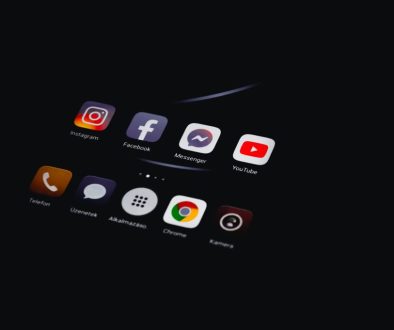Alon Preiss: It’s Time to Lift the Sanctions Against North Korea
As Russia marauds through Ukraine, North Korea is one of the few countries in the world to support this brazen and outrageous act of aggression. It is not a principled stand by the Hermit Kingdom, based on reason and morals; it’s simply a recognition by President Kim Jong-Un that Russia is one of its very very few friends in the world, and that if North Korea were to abandon Russia, that might be the end of it for President Kim and his nation.
As the Russian invasion continues, however, the U.S. turns to strange bedfellows for support, such as its newly proposed détente with Venezuela. Certainly a large part of our reachout to Venezuela’s President can be attributed to our need for oil, but another not-insignificant goal is to limit Russian influence in Latin America. A similar détente with North Korea, without the conditions we previously demanded (most-notably our insistence that North Korea de-nuclearize) is even more appropriate and could be even more geopolitically useful.
North Korea has Good Reason to Seek Enhanced Defense
Like the fellow said: Just because you are paranoid doesn’t mean that people aren’t out to get you.
North Korea has legitimate security concerns and good reason to distrust the world’s intentions. President Trump pointed to the example of Libya as a model for North Korea’s denuclearization; if he wanted to reassure the North Korean government and its people, suggesting that President Kim could reap a future as glorious as General Gaddafi, and that a denuclearized North Korea could be a paradise like today’s Libya, was not the way to do it. Neither was his admission that he was actively considering the nuclear annihilation of the Hermit Kingdom through “fire and fury.”
The United States threatens the economic and military destruction of the North Korean people because North Korea has the gall to develop nuclear weapons for exactly the same reason that America did: for self-preservation. And exactly the same reason that China, India, Pakistan and Israel did, all nations not subject to U.S. sanctions. The U.S. doesn’t really view North Korea as a legitimate nation with the right to self-determination, so its need for nukes is even greater.
Listen to Tom Lehrer’s “Who’s Next?” for a crash course on the rush to nuclearize. It’s awful, but it’s not irrational.
Russia has had nuclear weapons for generations, and after the fall of the USSR, the West welcomed it into the community of capitalist nations without demanding that Russia denuclearize. Even after Russia invaded Ukraine this week, the West proposed sanctions less punishing than those inflicted on poor North Korea, which hasn’t invaded anyone. And the U.S. made it clear that we would neither put boots on the ground in Ukraine nor impose a no-fly zone, even though we did both when Iraq invaded Kuwait. What was the difference? This would bring the U.S. into direct conflict with Russia, and Russia has nukes.
Ostracizing and humiliating North Korea will not bring it to heal, will not lure it into the so-called community of peaceful nations; President Kim need merely look to Iraq and Syria, and Saddam Hussein and Muammar Gaddafi, for examples as to what will happen if he gives up North Korea’s nuclear weapons and aspirations. But even with nukes, North Korea is a threat to no one, and as the world grows more dangerous, and as Russian’s mischief grows more menacing, we need all the friends we can get.
Harm to ordinary people
The West has limited its sanctions on Russia because it wants to hurt only “the bad guys” and not “ordinary Russians.” But the same sanctions that the international community refuses to apply to middle-class Muscovites it eagerly slaps on North Korean peasant-farmers. As Kevin Gray, of the Just Security website noted, “UN sanctions had come to target nearly all the sectors that had underpinned North Korea’s tentative economic recovery and, as such, contradict claims that the measures ‘are not intended to have adverse humanitarian consequences for the civilian population,’ ” which has included, among other atrocities, tens of thousands of deaths from severe malnutrition.
The risk of nuclear proliferation increases when you cut off legitimate trade
As John Delury, associate professor at the Yonsei University Graduate School of International Studies in Seoul, South Korea, wrote, “ ‘Comprehensive’ sanctions send North Korea deeper into isolation and increase the risks of a war that no one wants, a war that could be truly catastrophic.”
Let’s begin with a reasonable assumption: Kim Jong Un doesn’t want terrorists to obtain nuclear weapons any more than we do. Especially religious terrorists , who would have no especial affinity with an atheist police state. But if faced with a choice between dealing with terrorists or watching his citizens starve, Kim will deal. I will admit just for the sake of argument that Kim doesn’t care whether his citizens starve — I think he cares, but I don’t know — but he is well aware that he is more likely to be deposed and killed if his citizens starve, and there is abundant evidence that Kim cares about saving his own skin.
If we continue to embargo North Korean ceramics and restaurants, then President Kim will do one of two things (and possibly both): he will encourage smuggling to our friends and open up new military markets with our enemies. Thus he will cement a new surreptitious underground pirate economy; and/or he will sell nuclear secrets or weapons themselves.
With the embargo in place, Kim is also more likely to see the U.S. and the West as intractable enemies, which encourages him to maintain and increase his nuclear arsenal and seek security arrangements with our enemies, with good reason. If we lift the embargo, allow trade to flow between our two nations, none of that will happen. While North Korea will not denuclearize, the regime may view its nuclear activities as less urgent.
Keeping the embargo in place hardens North Korea’s enmity, strengthens our adversaries and puts our safety at risk. Lifting the embargo improves our security.
The risk of Kim Jong-Un’s overthrow
Kim Jong-Un is a potential reformer, and punishing him more than we punished his crazy dad risks President Kim’s overthrow. Undoubtedly someone worse would take power.
Some critics have said that going to a Swiss school (and having a beautiful wife) doesn’t make him a reformer.
But … yes, it does.
He understands the West; he has expressed frustration that the abundance he saw in Europe is unavailable to his people. He wants a different North Korea.
He has done terrible things, but they are explainable, if not exactly defensible.
His first act in office was … a purge, including the massacre of family members.
Do I defend this?
No.
(Um … not exactly.)
This is awful. Horrible. Brutal.
But he faced a few awful, horrible and brutal choices.
One: govern as a true liberal reformer immediately, before consolidating power, resulting in his swift overthrow and death.
Two: refuse to govern at all, resign and leave the country, resulting in his assassination.
Or three: accept the presidency and lead a murderous purge of his enemies in order to prevent his own death.
The morally correct choices were either the first or the second. He chose number three, the only scenario in which he would survive. In other words: if you are the president of North Korea and still alive, it means that you have done horrible things. If we are going to deal with the president of North Korea, then we will inevitably deal with a criminal.
When you see Kim Jong-Un’s face in pictures of his father’s unexpected funeral, you witness something beyond sadness at the loss of a parent. It is mortal fear. He knew what he would have to do, and what would happen to him if he did not.
Other terrible things that he has done? His periodic and brutal crackdowns on things like Western culture and K-Pop are likely a reaction to conservative elements in the government that threaten him, not something he believes in. (A man with a beautiful wife probably appreciates K-Pop.)
On the other hand, he reformed the economy and even loosened the reins a bit, implemented governance changes that decentralized power and made himself less of a dictator, opening the door to further political reform.
The North Korean economy was recovering under President Kim; his reforms were working.
We have chosen to punish the first reformer in North Korean history; do we think that improves the chances for reform?
Furthermore, those who have met President Kim have come away impressed by him as a leader and as a person. Either they are all morons, or we have a real opportunity here, one that we should not squander.
The North Korean “Juche” ideology
At the moment, the U.S. believes that it controls international commerce, that it might keep the screws on forever, and that any nation that wishes to survive will come around, eventually. For years, North Korea has made it clear that, while it won’t surrender to all U.S. terms, it wants a better relationship. That is in part driven by China’s partial acquiescence to America’s demand for North Korean sanctions. But there is abundant evidence that this won’t last forever.
The North Korean “Juche” ideology has some useful elements, which combines Marxism with Confucianism and a kind of self-reliance that permits, theoretically, a local population to avoid the exploitation of global capitalism (or any other global-ism). The Juche ideology has led to moments of transcendent beauty, not least of which is the glorious capital city, a gorgeous vision that constantly reinvents itself.
Some of us think that a democratic socialist economy, one that permits freedom of thought and localized decision-making (libertarian socialist anarcho-syndicalism, if you like) offers some kind of opportunity for global equality. Juche has resulted in great suffering, but it need not always be so. And working directly with North Korea is the best way to ease the worst excesses of the political ruling class, moving North Korea out of Russia’s tyrannical orbit, and maybe even learning some things that would make the Western, globalized, capitalist world a little less heartless.
^^^
Alon Preiss is the author of In Love With Alice (2017). Available NOW from Amazon, Barnes & Noble or from ANY BOOKSTORE IN ANY TOWN OR CITY IN AMERICA
Image design and model: Kalyee Srithnam



